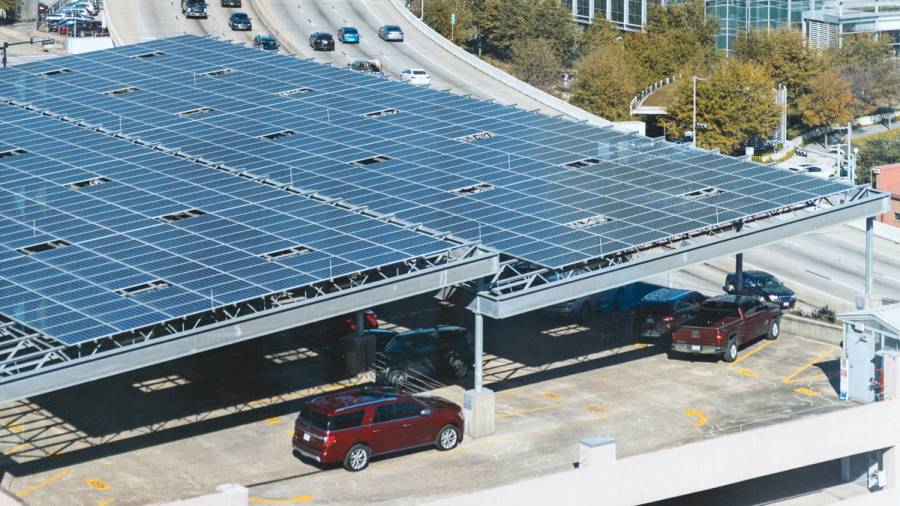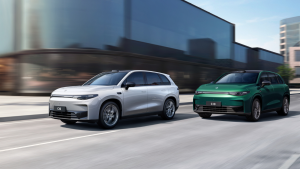Can electric vehicles really reduce pollution?
Last month the World EV (Electric Vehicle) Day on 9th September was celebrated with quite a bit of fanfare in our country. Several state governments released advertisements with details of their EV policies and incentives, and auto and EV manufactures, also voiced their views on the transition to E-mobility (electric mobility).
 Some state governments are getting e-buses for public transport, but more should do this
Some state governments are getting e-buses for public transport, but more should do this
The increase in prices of petrol and diesel has also increased interest in EVs and it was recently reported, that the number of electric vehicles in Mumbai has doubled in the last two years. But despite this, EVs only make up about 1% of total vehicle sales. Nevertheless, I am sure things will change and in future there will be a substantial shift to EVs.
 E- scooters and bikes are getting popular and with battery swapping centres coming up, they will become more practical
E- scooters and bikes are getting popular and with battery swapping centres coming up, they will become more practical
Some of the policies of the government are also quite good and the road transport ministry has decided that one can now buy and register an EV without pre-fitted batteries. The batteries account for 30 to 40% of a EVs cost price, and buying one without a battery, is obviously far more affordable. And renting a battery to drive your EV will become easy as several companies are setting up battery supply or swapping stations. Reliance Industries has even entered into a joint venture with the UK power firm BP, and they plan to have India's largest network of such stations. So if you can hire and swap batteries, where is the need to buy them? This will also do away with the consumer's headache of charging a battery and save on time.
 E- scooters and bikes are becoming popular and with battery swapping centres coming up, they will become practical
E- scooters and bikes are becoming popular and with battery swapping centres coming up, they will become practical
Another good plan is the one to make all urban freight vehicles run on electric power in the next two years. Several delivery companies like Zomato, Blue Dart, Swiggy, Big Basket and so on, have said they will support this initiative and ensure that all their deliveries are only done by EVs.
 Range and charging time, these are the two most critical issues in EVs
Range and charging time, these are the two most critical issues in EVs
The Maharashtra Government has declared that in the future it will only purchase e-buses for public transport and almost 50 % of the fleet will be electric by the end of 2022. It already has about 300 e-buses and will add another 100 by end of this year. Presently 4 of their depots have charging stations, and the government aims to equip all the 27 depots with them at the earliest. This is a good plan, and I would be delighted if they went one step further and only installed eco-friendly solar charging stations for all their e-buses. And this is feasible, as most of the bus depots have enough space for large solar charging stations.
 The Government of Maharashtra is fast moving to e-buses for public transport
The Government of Maharashtra is fast moving to e-buses for public transport
The Government of Maharashtra has also announced that there will be mandatory procurement of electric vehicles for all government departments. In my opinion, such policies can make the transition to EVs smoother and faster, and they should be adopted on an all India level. Almost all states in India have their own public transport bus fleets and usually these are amongst the most polluting and noisy vehicles on the road. They also have their own depots or bus garages where solar charging stations can be fitted. I keep emphasizing solar, because the only realistic way of reducing vehicular pollution is by using carbon free renewable sources of energy to charge EVs. If we use coal burning plants or thermal power stations to generate the electricity to charge EVs, then all we are doing is shifting the source of pollution from the vehicle's tailpipe to the coal fired plants chimney! And let's not forget, the more EVs we have on our roads, the more coal we will burn to produce the power to charge them. So if we do not use low carbon or carbon free sources of energy to charge EVs, we might see an increase, instead of decrease in air pollution.
 We must go in for such solar charging stations as they are the key to reducing pollution. Image courtesy Bob Jose Losada on Unsplash
We must go in for such solar charging stations as they are the key to reducing pollution. Image courtesy Bob Jose Losada on Unsplash
In my view, our government has to set an example by being amongst the first to go in for EVs. They must make it mandatory for all Indian government agencies and departments, other than defence, law and order, emergency or security, to make a complete time bound shift to EVs. Also if the government is providing a vehicle to any politician, officer or government servant to use, it should be an electrically powered one. The prime reason for this is that the government purchases all these vehicles with tax payers money, so it should also bite the bullet and "walk the talk" on the transition to E-mobility.
 The world's highest charging was recently opened in Himachal Pradesh
The world's highest charging was recently opened in Himachal Pradesh
Large private companies, who also give their senior employees vehicles, can move to EVs too. Again most of these employees park their vehicles inside the company's premises or residences arranged by them, so setting up charging facilities is relatively simpler.
 Without such solar stations, we will only be shifting the source of pollution from vehicles to coal burning energy plants
Without such solar stations, we will only be shifting the source of pollution from vehicles to coal burning energy plants
Given all this, I seriously think our government should first concentrate on shifting all public transport buses and fleet delivery vehicles to E-mobility and also make a rule that hereafter it will only purchase EVs. It should also encourage and promote battery supply and swapping stations, especially for two wheeler's, as they have smaller batteries that can easily be lifted out and exchanged. And of course it has to go in for carbon free sources of energy to charge batteries of all EVs, otherwise the issue of greenhouse gas emissions will remain. And the entire exercise of shifting to EVs will be futile.












